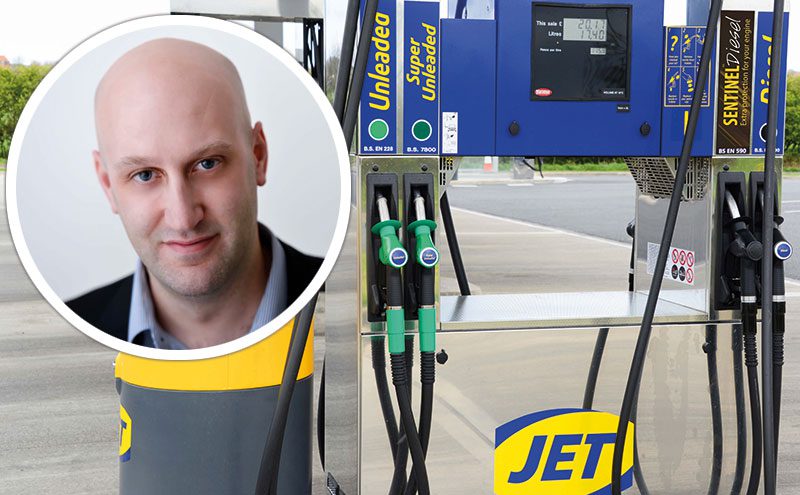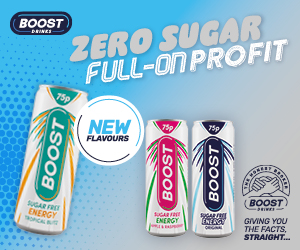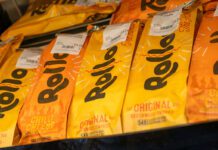Paul Yates of Jet weighs in on future prospects

COMPETITION may be fierce but in some ways there’s never been a better time to be a forecourt retailer if you’re prepared to move with the times and meet changing demands.
Today’s market conditions are ripe for retailers who want to get ahead, according to Paul Yates, retail accounts manager at Jet, who recently shared his views on how Scottish forecourt retailing has evolved in recent years.
“Current market conditions are creating an environment where ambitious forecourt dealers can thrive – as long as they understand the changing needs of the consumers and deliver on those expectations,” said Yates.
“The current conditions also offer great opportunities for those fuel suppliers who are committed to helping their dealers thrive by excelling at the fundamentals: offering the best value for money, product quality and supply reliability.”
Turning to fuel’s prospects for 2018, while making long-term oil price predictions is more astrology than astronomy, the stars do seem to be aligning in the direction of stability, with the price of a barrel unlikely to see the kind of collapse experienced in 2016.
A deal between the Opec cartel of oil-producing nations in the Middle East and other oil-rich nations including Russia was extended in December. This deal should see the ongoing curb in production continue throughout 2018 with the price of a barrel potentially ticking upwards as global stockpiles shrink.
Discerning consumers are driving up demand for quality product, whether normal or premium grades.
Wherever the fuel price goes, it’s important that forecourts are offering the right stuff, according to Yates, who reckons those who do not offer a premium fuel option could be missing a trick as customers seek out quality at the pumps.
“Fuel quality is important and is one of the most important considerations when consumers choose where to purchase fuel. Discerning consumers are driving up demand for quality product, whether normal or premium grades.
“The popularity of premium products is rising and not just among those with high performance cars as consumers look for fuel products that can increase engine protection and improve the overall performance of their cars,” he said.
“By introducing premium fuels on their forecourts, independent dealers can not only create a competitive advantage and offer consumers more choice, but also reap financial benefits for themselves, making premium fuels an attractive proposition for consumers and dealers alike.”
Fuel might be the unique selling point that sets forecourts apart from other convenience stores, but for many retailers shop sales are as important as activity at the pumps, according to Yates.
But despite the hype for all things fascia and franchise that’s swept through the forecourt sector in recent years, there’s no sense in jumping into a new convenience offer without pause, and Yates suggests retailers take a step back to assess whether a branded approach is right for their business.
“For some sites, it seems that convenience brand loyalty is often as, or more important than the fuel brand.
“But it’s important to recognise that although brand partnerships will provide the ideal opportunity for some forecourt operators to differentiate themselves from their local competition, they are not necessarily the right solution for every forecourt in the country.
“Independent research commissioned by Jet in early 2016 showed that 70% of consumers simply want to fuel quickly and efficiently, so being able to offer consumers a bright and welcoming image, high quality pumps and well-maintained forecourt facilities is key.
“And being able to consistently offer a first-class consumer experience is vital in developing loyalty – regardless of store size.”














